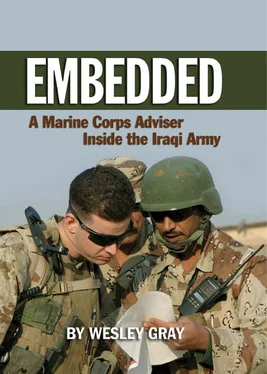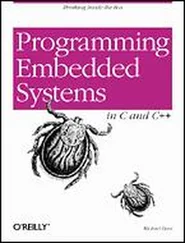After handing the microphone off to Imus, I went back to my desk to get my head around what had just happened. I then heard the lady crying over the microphone. She moped, “Imus, I love you—so much! How can I get you to America? I want to be with you forever. Just tell me when you come here and I will leave my husband for you. We are meant to be. I pray everyday that you will show up on my doorstep.” Imus smirked in my direction and then redirected his attention to his psycho friend, saying, “I love you too, darling. You are my flower, and my joy in life. Everyday I am without you is another day I wish I were dead.” I simply rolled my eyes at the crap he was spewing.
The Romeo and Juliet soap opera conversation went on for a good ten minutes. Eventually, the woman’s husband came home and she needed to cease the webcam conversation before she was caught. Imus gave her his best wishes and more words of his undying love for her. After this experience I never questioned any of Imus’s stories. I had witnessed with my own eyes the absurdity that can occur over the Internet. While there was a general lack of sex education throughout Iraq, a few Iraqi men had done their research. ¡Ay, caramba!
Laziness, Lack of Initiative, and Militias
Sometimes working within Iraqi culture is fascinating and provides a front-row ticket to a comedy show; however, most of the time it is simply frustrating. One morning it seemed like there needed to be five Mulazim Jamals at one time. Everyone on the adviser team liked to task me to deal with their jundi problems. Now even the boss was getting in on the action.
Major Pyle grabbed me and said, “Jamal, I need some help with the Iraqis.” I replied, “Sure, Sir. What do you need?” He said, “Jamal, I need you to address Lieutenant Seif and ask him why the hell he didn’t wait for me to attend his convoy brief this morning. We had a deal last night that he would wait for me. I thought you had these guys squared away.” I knew why the Iraqis didn’t want him to attend the briefing—they hate him. Even at this late stage in the deployment the boss insisted on controlling everything the Iraqis did. The jundi wanted no part of him.
We caught up with Lieutenant Seif. He addressed me in Arabic before we were able to utter a word. I interpreted what Seif said to the boss. “Sir, in a nutshell, Seif says he started his brief early so his men could prepare their trucks and be on time for the convoy departure.” Once the boss left the area, I addressed Seif to get the genuine scoop. The reality of the situation was that Seif started the convoy brief ten minutes early, went over the basics, and cut everyone loose. They didn’t want Major Pyle attending because they knew he would drag the meeting out forever and make them do their convoy brief according to the Marine standard I taught them a few months prior.
Major Pyle, like many U.S. military commanders, always wanted to add complexity and extra bullshit to the Iraqi equation. In the Marines we can accept longer meetings that go over things in more detail. We can accept more attention to detail. We can accept time-consuming measures that lower risk. In summary, Marines are Americans, and Americans are typically risk averse when it comes to life or death situations. We do everything we can to mitigate risk, despite the fact the mitigation efforts will cost us in lost time.
But the Iraqis are completely different. They are much more willing to accept risk if they can waste less time in meetings and on mission preparation. The Iraqis will never accept the Marine way of doing things as the right way of doing things. Sure Marine methods may save someone’s life every so often, but every second spent pontificating and addressing risk factors is time wasted to Iraqis. The cultural acceptance of death makes the jundi lazy. For Americans being labeled as “lazy” automatically carries negative connotations. Paradoxically Iraqis will think of positive connotations associated with being lazy. In their mind, lazy people are wise people.
I was starting to follow the Iraqi logic, despite how obtrusive it was to our mission in Iraq. Being lazy made perfect sense in the Iraqi environment. Imagine being raised in a Bedouin tribal culture, immersed in a searing desert environment where the next fight for survival could be at any moment. For any chance at survival you would make sure you didn’t waste time or energy on frivolous activities. Wasted effort meant more water lost, more resources expended, and less readiness for an inevitable conflict. This attitude, I began to realize, pervades everything Iraqis do. Their laziness is an adaptation, a survival mechanism they use to cope with an extreme environment.
To get a better understanding of why Iraqis are so lazy, lack desire, and have no initiative, I approached our terp, Moody, whom I considered a sage on Iraqi politics and culture. “Jamaaaalll, come on in!” Moody shouted, as I entered the terp’s swahut. Lebanese music videos were blaring on the television, and the smoke from Moody’s hookah pipe engulfed his head. “Jamal, sit down, chill out, stay a while my friend.”
After a round of small talk I started my interview. “Moody, I’m going to be frank here. Why in the hell are the jundi so lazy?” Moody smiled and said, “Jamal, the answer is simple. Their country is at war, their families are in constant danger, they are not paid much, they live in Al Anbar, their work sucks, everyone is corrupt, they don’t get a chance to see their families often, their relatives and friends are dying everyday, and there is no real incentive to even be alive. Would you be very motivated in this situation?” Before I could even answer Imus mysteriously popped out from under his bed sheets and said, “Jamal, if I already live in hell, why does it matter if I live or die? I do not care. Why would I put effort into anything?”
“Thanks for your two cents, Imus,” I replied. “You can go back to bed now.” I turned toward Moody again. “Moody, seriously, how can these guys be so lazy? Do they not have this same sense of patriotism or pride in their work as Americans? How can we get them motivated? Colonel Abass told me that in the old Iraqi army soldiers were more motivated.”
Moody broke things down like an economist. “Jamal, American soldiers are idiots when you think about it. Americans use pride, patriotism, and all that shit so they can pay their soldiers less money. And at the same time, the government is able to get them to do a very dangerous and crappy job. Think about it.” Moody looked at me then continued. “Colonel Abass is correct—at some level. In the past there was a lot more pride and sense of patriotism in the old Iraqi army, but let me tell you that Iraqi soldiers were still lazy back then. It’s just that at that time Saddam was able to use fear to motivate the jundi . If they didn’t perform their duties, they were pummeled or their families were beaten.”
I asked, “What’s the solution?” Moody said, “Solution to curing Iraqi laziness? Ha!” He paused. “You want more soldiers? You want them to work harder and get more done?” He raised his voice and proclaimed, “Pay… them… more!”
I laughed aloud. Moody was spot on. “While I think there may be five idealistic patriots roaming the Iraqi countryside,” he ranted, “my guess is that the rest of those who join the Iraqi army don’t believe in the government or the country. All they care about is getting a paycheck, feeding their families, and being a respected member in their tribal community. The Iraqi army is nothing more than a mercenary force made up from local tribes who are hired by the central government to do its bidding. The way to encourage mercenaries to do a better job is to pay them more money. It’s pretty simple.”
Читать дальше












